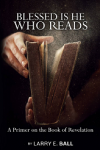 PMW 2024-030 by Kenneth L. Gentry, Jr.
PMW 2024-030 by Kenneth L. Gentry, Jr.
The question of “the Land” is of paramount importance for the dispensationalist. Dispensationalism is a whole systematic theology — not simply an eschatology — that has as one of its chief cornerstones the predominant role of Israel in God’s plan for history. If the way to a man’s heart is through his stomach, the way to a dispensationalist’s heart is through the Land of Israel. Unfortunately, the whole New Testament contradicts it.
The Land question is also of enormous significance in the current wider world of politics and international relations. Many Christians consider themselves to be “Christian Zionists,” and strongly urge Western governments to support Israel — regardless.
In this blog I will provide a brief review of an excellent new book on the subject of the Israel and the Land: Jesus and the Land: The New Testament Challenge to “Holy Land” Theology (Baker Academic, 2010; 153 pp; soft cover). The author is Gary M. Burge, professor of New Testament at Wheaton College Graduate School.
THE APOCALYPSE OF JOHN
by Milton S. Terry
This book is Terry’s preterist commentary on the Book of Revelation. It was originally the last half of his much larger work, Biblical Apocalyptics. It is deeply-exegetical, tightly-argued, and clearly-presented.
For more study materials: https://www.kennethgentry.com/
Dr. Burge is a competent New Testament scholar, holding a Ph.D. from the University of Aberdeen. He is a member, The Society for Biblical Literature; Institute for Biblical Understanding; and Tyndale Fellowship for Biblical Research, Cambridge, England. He is also very knowledgeable regarding contemporary “Holy Land” issues. Besides this work he has authored Who Are God’s People in the Middle East? (1993) and Whose Land? Whose Promise? What Christians Are Not Being Told About Israel and the Palestinians (2003). He holds membership in Evangelicals for Middle East Understanding, as well as Holy Land Ecumenical Fellowship.
Though well qualified in the field, I confess that he does lack qualifications in three important areas: (1) He does not have a degree from Dallas Theological Seminary. (2) He is not a televangelist. (3) And as a consequence of #2 he does not appear to have bleached-white teeth. As a result of these three deficiencies he will not receive a wide reading among dispensationalists-in-the-pew.
The book is composed of eight succinct chapters and a helpful “Further reading” section. The chapters are: (1) The biblical heritage; (2) Diaspora Judaism and the land; (3) Jesus and the land; (4) The Fourth Gospel and the land; (5) The book of Acts and the land; (6) Paul and the promises to Abraham; (7) Developments beyond Paul; (8) Land, theology, and the Church.
Why does the book have the title “Jesus and the Land” since only one chapter deals directly with Jesus’s ministry? Judging from the chapter titles you would think it might be better titled “The New Testament and the Land.” However, the title perfectly captures the point of the book. As Burge compellingly argues: Jesus is the fulfillment of the old covenant and all of its promises, including the Land. Let us see how this unfolds.

Blessed Is He Who Reads: A Primer on the Book of Revelation
By Larry E. Ball
A basic survey of Revelation from an orthodox, evangelical, and Reformed preterist perspective. Ball understands John to be focusing on the destruction of Jerusalem and the temple in AD 70. Insightful. Easy to read.
For more Christian studies see: www.KennethGentry.com
After important introductory material in chapters 1 (Abraham and the Old Testament backdrop) and 2 (non-Judean, diaspora Judaism), we come to Burge’s central chapter: “Jesus and the land” (ch. 3). Here he carefully surveys relevant highlights from Jesus’ teaching in the Synoptic Gospels. He points out that despite the longing and perspective of many (not all!) first-century Jews, Jesus downplays the Land — as well as two other “holy places” for Israel: Jerusalem and the Temple. In a later chapter Burge captures this point well: “the lens of the incarnation had now refocused things completely. Christian theology had no room for ‘holy places’ outside of the Holy One who is Christ” (p. 94).
In his preaching the Lord begins transferring Israel’s hope from a Land to a Person; that is, to himself as the Messiah who has now come in fulfillment of the old covenant types, promises, and prophecies. Burge then traces and develops this theme in John, Acts, and Paul, with a briefer analysis of Hebrews and Revelation. He argues that as Israel rejects Christ: “The city at the center of Judaism’s religious aspirations has now failed some test that will lead to its judgment” (p. 45). As a consequence of Jesus’ teaching and Israel’s failure John develops his “theological agenda” which is “his messianic replacement (or fulfillment) motif” (p. 46).
In chapter 5 (“The book of Acts and the Land”) Burge shows Luke’s intentional theological structure, which traces Christian’s message and movement. He notes that both begin gradually to discount the Land: He reminds us that Jesus himself only ministered within Israel (Matt 10:5; 15:24). And though the Church begins in Jerusalem, it quickly starts moving away from Jerusalem and out of the Land. The largest discourse is Stephen’s sermon (which is the last speech given in Jerusalem): it represents diaspora Judaism outside of Israel rather than Judaism in the Land. Then Acts moves quickly to the Gentile world, ultimately focusing on and emphasizing Paul’s ministry in bringing in Gentiles.
In Acts, Luke does not appear simply to be tracing Christianity’s historical chronological growth. Rather Luke’s structure is more interested in presenting Christianity’s redemptive-historical theology. That is, Christianity is developing away from a Land-based theology to a Christ-based theology, away from a Jewish focus to a Gentile-focus.
As a result of all of this theological-structuring of Christianity’s development, Burge shows that “early Christian preaching is utterly uninterested in a Jews eschatology devoted to the restoration of the land” (p. 59; emph. his). And this is despite the fact that Paul usually begins his ministry in diaspora synagogues before reaching out to the Gentiles. Thus, Acts shows that “the Land of Promise was the source of Christianity’s legacy but no longer its goal” (p. 61). Thus, “the striking thing is that Paul here can refer to the promise of Abraham and not refer to the Land of Promise. . . . Paul is consistent with all the speeches in the book of Acts. Paul as well as Peter can consistently ignore the central elements in Abraham’s life according to Jewish teaching: land and progeny” (p. 68).
 The Book of Revelation and Postmillennialism (Lectures by Ken Gentry)
The Book of Revelation and Postmillennialism (Lectures by Ken Gentry)
In the first of these three 50-minute lectures Gentry explains Revelation’s judgments to show they do not contradict postmillennialism. In the next two lectures he shows how the Millennium and the New Creation themes strongly support the gospel victory hope found in postmillennialism.
See more study materials at: www.KennethGentry.com
Though I wish he had developed the issue further, I was pleased to see that Burge at least holds to a semi-preterist understanding of Revelation, a view that is generally called the “idealist-preterist” approach. He even allows that Babylon “may also refer to Jerusalem, but also alludes to Rome itself” (p. 105). What is more, he states that “it may be that the harlot refers to Jerusalem or the high priest in his final corruption before the war” (p. 106) — which happens to be the view that I am developing in my commentary on Revelation. Thus, regarding the Land and the Book of Revelation, Burge properly notes: “In Revelation it is the Holy Land that becomes a land of violence toward the people of God and in the end is subject to judgment and devastation” (p. 108). This is right on target, and well put.
I highly recommend this book as a judicious and insightful study of the question of the Land of Israel in Scripture and theology. It deserves wide reading and discussion.
The Divorce of Israel: A Redemptive-Historical Interpretation of Revelation
This long-awaited commentary is now at the printer and should be available for the public in late April, 2024. It is an 1800 page, two-volume deeply exegetical, academic commentary on the Bible’s most mysterious book.
Pre-order today for a special discount. Click: HERE
See more study materials at: www.KennethGentry.com


The kingdom began with the binding of Satan. How will the church be successful with the loosening of Satan.
Check this out: https://postmillennialworldview.com/2014/09/05/final-battle-final-collapse/
Thanks
The older I get, the more open I am to reconsidering my views per ‘oh so many’ of my ingrained beliefs and emotional ties. This posting and, potentially, Dr. Burge’s new book has encouraged me to delve further into my long-held passion for the physical land of Israel.
My first visit to Israel was life changing for me, not as it related to a re-built Temple, rapture, tribulation, the millenium, etc., but instead as a kind of anchor adding new meaning to the Scriptures. I suddenly became more able to interpret them relative to the place in which they took place, and the audience they were originally written to…which was key to my move away from a dispensationalist theology.
Thank you.
PS Light a fire under those printers’ fannies re THE DIVORCE…please!
At the risk of sounding like the CPA/CFO I am (or was until I retired), is there any way you can monetize your promotion of books like Dr. Burge’s? You put so much time and effort into these posts, I would love to know your efforts would be partially rewarded with a funding source to support future efforts on your part. With most others, I would be concerned the profit motive might sway their views, but I have no such fear with you. (paid link to book vendor, book available for purchase on your website, other?)
I know and can already hear the echoes…”his reward is in the spiritual realm”. On the other hand, to do as I have suggested may be a ‘good stewardship’ consideration.
Thanks for the thought. And the idea. I wonder . . . .